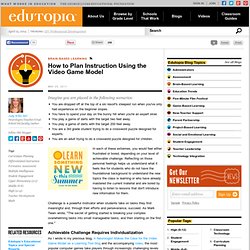

Amazon. A theme park for learning. We're ecstatic about how our annual conference is shaping up with an astonishing line up of speakers, the creation of a unique environment within Olympia, the LWF Awards, our supporting partner, our FREE festival and an amazing delegation representing a heady cross section of participants from the education, digital media and entertainment sectors.

Will you join us? In this newsletter Latest speaker line-up from Noam Chomsky to Sir Ken Robinson LWF 12 promises a 'theme park for learning' - report by Merlin John LWF 12 supported scholarship places for educators - apply now LWF Awards for Education Innovators & Innovations - nominate now Unique environment - pop-up university of the future (see the map) Supporters announced - Nintendo, Pearson, GSMA, WISE & more FREE Festival - sign-up now Save £200 AND receive an iPad 2 Join our LinkedIn Group here and get a special code that will save you £200 on your registration for the LWF 12 conference AND get you an iPad 2 in time for the holidays*
How to Plan Instruction Using the Video Game Model. Imagine you are placed in the following scenarios: You are dropped off at the top of a ski resort's steepest run when you've only had experience on the beginner slopes.

You have to spend your day on the bunny hill when you're an expert skier. You play a game of darts with the target two feet away. You play a game of darts with the target 200 feet away. You are a 3rd grade student trying to do a crossword puzzle designed for experts. In each of these extremes, you would feel either frustrated or bored, depending on your level of achievable challenge. Challenge is a powerful motivator when students take on tasks they find meaningful and, through their efforts and perseverance, succeed. Achievable Challenge Requires Individualization The video game model is ideal for kids lacking in foundational knowledge, but it is not necessary for all kids at all times.
The Role of Scaffolding Demonstrating Incremental Progress Strategy 1: Use Rubrics Strategy 2: Flexible Grouping. The Self-Imposed Challenge. I've often experimented with assessment in my classes.

I once--somewhat masochistically--asked students to come up with questions for me to take as a midterm. (The point of it was to turn the idea of a midterm on its head, not to find out what students know, but what they don't know, and why. It's a very effective way of finding out gaps in their knowledge and be able to fill it quickly. It was a small class, fortunately, and I changed the format the next time round, asking the students to make their own midterms for each other.) For all the talk about games-based learning and gamification of the classroom (not sure about the latter yet, will blog about it in due time), I'm surprised the question of assessment hasn't come up as often as it should have. A role for exogenous games? Last year, I was offered to teach a class on grammar and structural linguistics, which I accepted with some hesitation because I considered it a bit outside of my comfort zone.

I've taught sociolinguistics and communications courses before, but this is hardcore linguistics, requiring knowledge not just of grammar but also of how to analyze the underlying syntactic structure of sentences using grammar trees. What made it even more intimidating was that these were four hour courses, and I had to make it interesting to the students. Games, then. I had always like Kurt Squire's (2006) differentiation between "endogenous" and "exogenous" games, where endogenous games are games that marry form with content, such that by playing the game and learning its rules, you are also understanding the content of the game.
I would've loved to design an endogenous game for the linguistics class, but there weren't enough students. In my first class, I had them play some board games. References. My problem with "just-in-time" learning. "Just-in-time (JIT) learning" is the newish buzzword you hear often in association with video games and learning.

It's a deceptively simple idea suggesting that learning is better when it is "on-demand. " You encounter a problem, you're given the information to solve it, and you solve it then and there. No need to memorize a set of facts ahead of time that you may or may not use in the future, no need for abstract concepts that have no bearing on the immediate demands of the situation, no need for decontextualized facts and figures. As far as I know, this concept is assumed to be right and I have never seen the concept criticized before, but I'm going to go ahead and say: I have a problem with JIT learning on two levels: 1) It's overly vague and 2) It often doesn't work.
JIT is a concept that originated in the business world, specifically in operations management. (There are problems with JIT, even within the business world context. Overly vague.